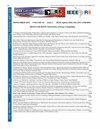用直接数值方法和进化算法优化生物乙醇生产
IF 1.3
4区 工程技术
Q3 COMPUTER SCIENCE, INFORMATION SYSTEMS
引用次数: 0
摘要
本文以直接数值方法为基础,针对以葡萄糖和果糖为底物的生物乙醇喂料批量生产开发了一种动态优化方法。控制生产过程的数学模型由六个微分方程组成,具有高度非线性。所提出的策略使用傅立叶三角函数基础和归一化正交多项式对底物进料速率进行参数化。然后,结合进化算法和梯度法来搜索能产生最佳控制作用的参数。这种参数化方法需要优化的参数数量最少。此外,最优曲线的连续性和可微分性使其能够直接应用于物理过程,无需对其进行过滤或平滑处理。此外,它们还是生物工艺的理想选择,因为在生物工艺中,最好避免工艺操作模式的突然改变,以促进细胞生长。结果,仅使用 3 个参数,乙醇产量就提高了 3.5%,而参考参数至少使用 10 个参数,并提供阶梯式进料曲线。模拟结果很有希望,使这项建议成为工艺优化方面极具潜力的替代方案。本文章由计算机程序翻译,如有差异,请以英文原文为准。
Bioethanol production optimization by direct numerical methods and evolutionary algorithms
This paper develops a dynamic optimization methodology based on direct numerical methods, for the bioethanol fed-batch production from glucose and fructose as a substrate. The mathematical model that governs the process consists of six differential equations and is highly nonlinear. The proposed strategy uses the Fourier trigonometric basis and normalized orthogonal polynomials for substrate feeding rate parameterization. Then, evolutionary algorithms and gradient methods are combined to search parameters that generate the best control action. This parameterization methodology requires a minimum number of parameters to optimize. Also, the continuous and differentiable nature of the optimal profile enables its direct implementation in the physical process, eliminating the necessity for filtering or smoothing it. In addition, they are ideal for bioprocesses, in which it is preferable to avoid abrupt changes in the operating modes of the process to promote cell growth. As a result, using only 3 parameters, a 3.5% increase in ethanol production was achieved, while the reference uses at least 10 parameters and provides a stepped feed profile. The simulations have yielded promising results, making this proposal an alternative with excellent potential for process optimization.
求助全文
通过发布文献求助,成功后即可免费获取论文全文。
去求助
来源期刊

IEEE Latin America Transactions
COMPUTER SCIENCE, INFORMATION SYSTEMS-ENGINEERING, ELECTRICAL & ELECTRONIC
CiteScore
3.50
自引率
7.70%
发文量
192
审稿时长
3-8 weeks
期刊介绍:
IEEE Latin America Transactions (IEEE LATAM) is an interdisciplinary journal focused on the dissemination of original and quality research papers / review articles in Spanish and Portuguese of emerging topics in three main areas: Computing, Electric Energy and Electronics. Some of the sub-areas of the journal are, but not limited to: Automatic control, communications, instrumentation, artificial intelligence, power and industrial electronics, fault diagnosis and detection, transportation electrification, internet of things, electrical machines, circuits and systems, biomedicine and biomedical / haptic applications, secure communications, robotics, sensors and actuators, computer networks, smart grids, among others.
 求助内容:
求助内容: 应助结果提醒方式:
应助结果提醒方式:


